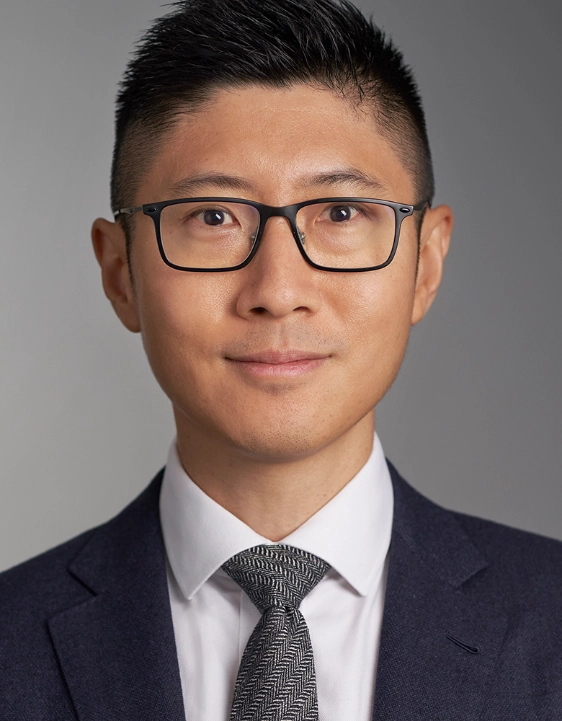Stay in the know
We’ll send you the latest insights and briefings tailored to your needs
My career path was not conventional, and certainly not linear like a 'lifer'. I started out as an associate at an international law firm in Shanghai and later in Beijing, where I worked on international trade, shipping and shipbuilding disputes. I then went on secondment to that firm's London headquarters, which was where I first began to work on construction disputes, especially in offshore oil and gas projects, and became interested in this area.
After London, I went back to Beijing and joined another international law firm, which specialised in construction disputes. This was a particularly interesting time as China's Belt and Road projects were taking off. I had the chance to travel to places like Pakistan and Sri Lanka to work with clients' project teams on some mega construction projects. Being based in Mainland China also helped me to hone my professional Chinese and understand Chinese clients' mindsets.
In 2018, I joined Herbert Smith Freehills' Hong Kong office, where I have been fortunate enough to continue to work on construction disputes while developing a more general commercial arbitration practice. I've had the chance to work with many brilliant arbitration and construction lawyers across the firm's network on some really interesting and challenging cases. It has been one of the most rewarding phases of my career.
Construction disputes involve, by nature, something tangible. You get to see the actual product and in most cases the scale and complexity are awe inspiring. I enjoy learning how an asset is built and how it operates. I considered myself more of a STEM student in school, so handling construction disputes allows me to satisfy an intellectual interest across both law and science.
There has been a new wave of Chinese contractors 'going out' into the international market, especially to Southeast Asia and the Middle East. With Southeast Asia in particular, there are still significant gaps in connectivity between and within countries, both physically through transport infrastructure and digitally through, for example, data centres. So we will continue to see a lot of construction activities and disputes in the region involving Chinese companies.
As for issues in dispute, we have seen a rise in sanctions-related force majeure claims, which have impacted delivery of construction projects of all kinds.
In regards to challenges, Chinese contractors are now increasingly finding themselves having to navigate geopolitics when undertaking overseas projects. There is also greater competition among Chinese contractors these days. With gradual saturation of the domestic construction market in Mainland China but more or less the same number of contractors, the competition for overseas projects has intensified.
In terms of opportunities, Chinese contractors and investors are particularly active in the energy and mining sectors. This is primarily driven by the green energy transition, China's technological and manufacturing advantages in renewables, such as solar, wind and batteries, and the need for resources security. The increasing level of investments translates into more construction projects and disputes for Chinese contractors, as well as more M&A disputes.

Murphy Mok
Partner
I think having a global mindset is the first step to specialising in international arbitration, given the nature of the disputes. It's also important to be able to work well with people from diverse cultures and backgrounds, who may have different perspectives and communication styles. Finding ways to connect with them, especially with tribunal members, is crucial.
It is also helpful to get as much arbitration-related experience as possible, and not just in private practice. Any experience is valuable. This includes attending arbitration events, mooting, working at arbitral institutions, third-party funders, or arbitration service providers, and serving as secretaries or assistants to tribunals. The broader your range of experience, the more perspectives you can bring to your work. It's also a great way to build your network, learn about others' career paths, and stay informed.
It’s important to find an area you're passionate about and develop your skills in that area. I would urge junior lawyers to stay curious and keep an open mind. The field of arbitration is vast and constantly evolving, so there's always something new to learn and explore.
I love hiking, although I don't do it as much as I would like to. For anyone visiting Hong Kong, I would recommend High Junk Peak, or the Twin Peaks and Violet Hill hike, ending up at Stanley – your legs might regret it, but it's a rewarding one! When I’m feeling less adventurous, you will probably find me up Mount Davis or the Peak on a Sunday morning.
I’m also a big fan of the excellent Hong Kong Philharmonic, road trips, scuba diving and finding new things to learn.
The contents of this publication are for reference purposes only and may not be current as at the date of accessing this publication. They do not constitute legal advice and should not be relied upon as such. Specific legal advice about your specific circumstances should always be sought separately before taking any action based on this publication.
© Herbert Smith Freehills 2024
We’ll send you the latest insights and briefings tailored to your needs